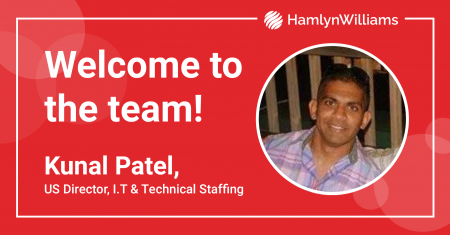
Today's job market is increasingly competitive due to factors such as globalisation, rapid technological advancements, and a growing emphasis on specialised skills, leading to a greater number of qualified candidates vying for the same limited job opportunities. Because of this, developing soft skills is crucial for both career and personal growth, as these interpersonal and communication skills can significantly improve work prospects and long-term career success. In 2023, LinkedIn published research suggesting that 92% of talent professionals and hiring managers believe soft skills to be just as important, if not more important, than hard, technical skills.
While technical skills and qualifications are essential for being suitable for a job, it’s the soft skills that enhance your effectiveness in the workplace and ensure you develop a well-rounded professional profile. Strong communication skills foster effective collaboration and relationship-building, essential in any work environment. Emotional intelligence and adaptability enable professionals to navigate challenges, work well within diverse teams, and lead with empathy. Time management and organisational skills can contribute to increased productivity and efficiency. Employers are increasingly recognising the importance of these soft skills in fostering a positive work culture and achieving long-term success within their teams.
What are ‘Soft Skills’?
Soft skills are a range of character traits and interpersonal abilities that define an individual's ability to engage and collaborate effectively with others. In a professional context, these skills serve as a valuable complement to hard skills, which are the skills that define your knowledge and technical expertise in a specific field. Soft skills can also be used to define emotional intelligence and are important for those in leadership and managerial roles.

Many of our essential soft skills (such as communication, teamwork, adaptability, and interpersonal skills) are used on a daily basis in the workplace. Because of this, hiring managers are increasingly paying attention to candidates’ abilities to work effectively both independently and as part of a team. Employers value skilled workers with a range of these skills because they are more likely to have experience working to deadlines, collaborating, and communicating effectively with a range of stakeholders including colleagues, leadership teams, and with prospective candidates or prospects. These employees are skilled at presenting projects, making arguments for a case, suggesting ideas, finding areas for improvement, but are also able to share their vision with others, helping their company to grow in the long run.
Soft Skills in Financial Services
In the financial services industry, a combination of technical proficiency and strong soft skills is crucial for success. With technologies continuing to change and develop at an increasing rate, the financial services industry is directly impacted by such changes to big data, cloud technology, blockchain and AI. While many of the skills required for successful navigation on these changes are not exclusive to the financial services industry, we’ve taken a look at why they’re particularly relevant to this sector:
- Communication Skills: clear and effective communication is essential for conveying complex financial concepts to various stakeholders, including clients, team members, and non-technical audiences. Because financial services professionals often work in interdisciplinary teams, there is an essential need for employees with strong teamwork and collaborative skills, all of which stem from clear and concise communication.
- Adaptability: since the financial services landscape evolves and develops so rapidly with frequent technological advancements and regulatory changes, as a sector it seems huge. Those working in the industry must have the skills to adapt quickly to these changes to stay current while navigating such shifts within the industry. Resistance to these changes can make you the dinosaur amongst your team and is sure to put the brakes on your career development.
- Analytical Thinking: financial services professionals must possess strong analytical skills to interpret data, identify trends, and make data-driven decisions. Data is central to the financial services industry, and so the ability to analyse and interpret financial information is crucial. With new and developing technologies flooding the market, those that can see incremental ways of improving existing processes centred around the handling of such data, are the people who will be making meaningful contribution to the evolving industry landscape.
- Problem Solving: the financial services industry can be plagued with legal challenges and so problem-solving skills are essential for teams to devise innovative solutions, optimise processes, and address issues that arise in a timely manner. As an industry, there is a lot of pressure to ensure businesses are reliable, compliant, and considered safe; this can mean an ongoing battle for teams to address and identify problems.
- Teamwork and Collaboration: as with communication, collaborative work is common in financial services projects in an increasingly digital world. Professionals must work effectively within interdisciplinary teams, combining technical expertise with insights from finance, marketing, and other departments. A team with employees who are experienced in this environment allows for more agile work and effective growth.
- Client-Focused Approach: financial services solutions are designed with the needs of their clients at the forefront. Understandably then, teams are being structured around individuals with a clear understanding of client perspectives, who can also demonstrate empathy, and communicate in a way that aligns with client goals and expectations. Managers of such teams must be able to keep in mind the needs of the client, while also being able to balance that with the needs and capabilities of their company.
- Ethical Judgment: given the sensitive nature of financial data and transactions, ethical judgment is crucial. Due to industry regulations and compliance laws, it is essential that employees have a thorough understanding of the legalities surrounding the industry and are conscientious individuals who can be trusted to uphold the highest standards of integrity.
- Time Management: as with most industries, the financial services sector often faces tight deadlines on projects, so effective time management is a core soft skill for most employees. Effective time management ensures targets are met and teams can deliver on projects and solutions, contributing to overall project and company success.
- Innovative Thinking: financial services (and fintech in particular) is inherently innovative, and those looking to develop their career in this field should ensure they develop a creative mindset. Thinking outside of the box will not only help with problem solving but will also help individuals to identify opportunities to explore new solutions, technologies, and business models that can disrupt and improve the financial industry, as well as their company’s existing services.
- Risk Management: understanding and managing risks is fundamental in any financial services role. Professionals need to assess potential risks associated with new technologies, financial products, and regulatory changes. For those in managerial roles, having good risk management skills will also help you identify potential problems and opportunities within your team, further supporting your ability to develop a strong team.
- Customer Service Mindset: financial services customers are renowned for speaking up when they’re dissatisfied. Employees with a customer-centric approach, coupled with strong interpersonal skills, can help contribute to positive user experiences and customer satisfaction. Even non-customer-facing roles can benefit from this skill, as it can help teams pre-emptively address issues or queries before they arise, ultimately leading to a happier customer, a smoother-working product, and a great company reputation.
- Networking Skills: building connections within the financial services ecosystem, as with any industry, can be a great way to further your career, become recognised as a thought leader, or even help your sales teams with some all-important referrals. Individuals who practice their networking skills can benefit by learning from (and working with) industry experts, potential collaborators, and investors, and can ultimately open up new opportunities for growth and collaboration.
Soft Skills in the Hiring Process
In the hiring process within the financial services industry, recruiters place significant emphasis on evaluating candidates' soft skills to ensure they possess the interpersonal qualities essential for success in client-facing and collaborative roles. Recruiters often use behavioural and situational interview questions to gauge these soft skills, encouraging candidates to talk about past experiences to better understand how the candidate in question might handle challenges, communicate with team members, and demonstrate their adaptability.
Common interview questions may revolve around teamwork, communication, problem solving, and how candidates handle pressure or ambiguity. To effectively showcase your soft skills on your CV and cover letter, consider adding specific examples of achievements that highlight your ability to work well with others, communicate complex financial concepts clearly, and contribute positively to team dynamics. Providing quantifiable results from previous experiences can further strengthen your CV, helping recruiters envision your potential contribution to a collaborative and client-focused financial services environment.
Training and Development
As a job seeker you can significantly enhance your soft skills through training and continuous development initiatives. Investing in training programs and workshops designed to develop essential soft skills such as communication, adaptability, and emotional intelligence can provide you with a competitive edge. Continuous learning not only sharpens your existing skills but will also introduce you to emerging trends and best practices within your industry.
The benefits of ongoing skill development go beyond immediate employability too and help you to grow a mindset of adaptability and resilience, which is crucial in navigating evolving workplace landscapes. By actively participating in training sessions and seeking opportunities for skill refinement, as a job seeker you not only demonstrate your commitment to personal growth but also position yourself as a versatile and valuable asset to prospective employers. In a job market where the demand for a well-rounded skill set is high, those who prioritise training and development stand out as proactive and forward-thinking candidates with an understanding of the ever-changing needs of the professional landscape.
To further enhance soft skills, you can also look beyond traditional education and technical training. Networking can be invaluable in refining communication, collaboration, and interpersonal skills. By attending industry events and engaging with other professionals you can open yourself up to new ideas and perspectives, while also cultivating relationship-building skills, and ultimately developing a deeper understanding of the industry's dynamics. By proactively participating in networking opportunities or even seeking mentorship from another industry expert, job seekers can holistically improve their soft skills while also making valuable contacts who may help throughout your career and will in turn help you hone your thought-leadership potential too.
Remember
The demand for soft skills in today's job market, particularly in an industry such as financial services, cannot be overstated. Soft skills such as communication, adaptability, analytical thinking, problem solving, teamwork etc., play a pivotal role in fostering success and innovation in a rapidly evolving industry. Individuals with well-developed soft skills are more likely to excel in teamwork, leadership roles, and client interactions. As industries evolve and become more dynamic, it is increasingly important that you can demonstrate strong soft skills and the ability to adapt to change, stay resilient, and continuously learn and grow.
Recognising the significance of these skills in the hiring process, job seekers are advised to spotlight their soft skills on their CV and cover letter, providing tangible examples that demonstrate your ability to excel in client-facing and collaborative roles. By committing to continuous training and development you can secure a strategic advantage over your competition. Investing in training to enhance your soft skills not only boosts your immediate employability but also cultivates a mindset of adaptability and resilience. Networking can also serve as a valuable avenue for refining your interpersonal skills, gaining industry insights, and building connections that can contribute to long-term career growth.
Job seekers who actively prioritise and invest in the development of their soft skills position themselves as proactive, forward-thinking candidates capable of meeting the evolving needs of the professional world. Ultimately, investing in soft skills not only enhances your professional capabilities but can also positively influence your career advancement and personal fulfilment.
If you would like to discover how we can help you climb the ladder and land your next role, head to the Hamlyn Williams contact page to get in touch or check out some of the roles we’re helping to fill now.



















